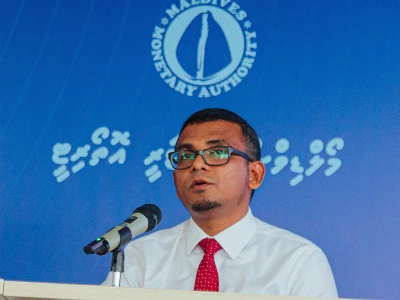
New fiscal responsibility Bill gives more money printing leeway
The bill allows for charter suspension in cases of natural disasters affecting over 15% of the population or immediate, unpredictable economic shocks.
The proposed State Fiscal Responsibility Bill, which includes increasing the amount of money that can be withdrawn or printed through the Central Bank, Maldives Monetary Authority (MMA), to meet government expenditures, has been introduced in Parliament.
The Fiscal Responsibility Bill, which the government proposed to replace the existing Public Expenditure Accountability Act, was moved by Thulusdhoo Constituency Member Ibrahim Naseem on Wednesday.
Article 6 of the bill states that the government should borrow money from the central bank only for the purpose of adjusting the government's cash flow.
In addition, the bill states:
-
The money will be repaid within three months at market interest rate
-
The amount will not exceed 2.5% of the average annual revenue of the government for the past three years
According to the current Public Expenditure Accountability Act, if the central bank borrows money to meet cash flow, it should not exceed 1% of the average income for three years. Thus:
-
The figure in the new bill is increased to 1.5%
-
The amount was proposed to be increased, but the repayment period is still three months under the current law
The previous government suspended all the limitations for withdrawal of money from MMA to cover for government expenditure during the pandemic. The then government continued to print money in large quantities.
However, this government has stopped printing money that way.
According to the Fiscal Responsibility Bill tabled in Parliament, a charter of fiscal responsibility on how to act within five years of a government has to be prepared and passed by the Cabinet and presented to parliament within six months of the start of each presidential term. The charter must ensure the sustainability of government debt, the bill said.
The charter states:
-
The increase in recurrent expenditure must be kept below the rate of increase in revenue
-
Before development projects are included in the budget, the financial impacts should be identified and feasibility studies should be done
-
The government, ministers and parliament must comply with the charter
In addition, the bill provides for circumstances in which the charter can be suspended. They are:
-
A natural disaster that affects more than 15% of the population
-
Immediate unpredictable economic shock




